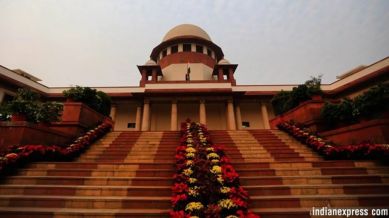Stay updated with the latest - Click here to follow us on Instagram
Supreme Court’s big relief for convicts: States must consider release even without application
The ruling orders states which don't have remission policy should to frame one in 2 months; cancellation only after hearing convict

The Supreme Court on Tuesday ruled that states which have a remission policy are obliged to consider eligible cases for the relief even without the convict applying for it.
“Where there is a policy of the appropriate Government laying down guidelines for consideration of the grant of premature release under Section 432 of the CrPC or Section 473 of the BNSS (Bharatiya Nagarik Suraksha Sanhita), it is the obligation of the appropriate Government to consider cases of all convicts for grant of premature release as and when they become eligible for consideration in terms of the policy. In such a case, it is not necessary for the convict or his relatives to make a specific application for grant of permanent remission,” a bench of Justices A S Oka and Ujjal Bhuyan said.
The bench said that “if such a policy exists, and if the State Government or the Government of Union Territory raises a contention that relief will be granted only to those who apply as per policy, it will amount to saying that even if convicts are eligible for consideration in terms of the policies, their cases will not be considered in terms of the policy. Such conduct on the part of the States will be discriminatory and arbitrary and amount to a violation of Article 14 of the Constitution.”
The court added that “the power under Section 432(1) must be exercised in a fair and reasonable manner.”
The top court directed States and Union Territories that do not have a policy dealing with the grant of remission in terms of Section 432 of the CrPC or Section 473 of the BNSS “to formulate a policy within two months from today.”
The judgment said that “appropriate Government has the power to incorporate suitable conditions in an order granting permanent remission.”
It added that “the conditions must aim at ensuring that the criminal tendencies, if any, of the convict remain in check and that the convict rehabilitates himself in the society. The conditions should not be so oppressive or stringent that the convict is not able to take advantage of the order granting permanent remission. The conditions cannot be vague and should be capable of being performed.”
The court said that the order granting or refusing the relief of permanent remission must contain brief reasons. “The order containing reasons should be immediately communicated to the convict through the office of the concerned prison. The copies thereof should be forwarded to the Secretaries of the concerned District Legal Services Authorities,” the court said, and added that it is the duty of the prison authorities to inform the convict that he has the right to challenge the order of rejection of the prayer for the grant of remission.
The ruling also said that in the 2024 case Mafabhai Motibhai Sagar v. State of Gujarat, “order granting permanent remission cannot be withdrawn or cancelled without giving an opportunity of being heard to the convict. An order of cancellation of permanent remission must contain brief reasons.”
It said that “in the light of the provisions of the CrPC and the BNSS, there is a power vesting in the appropriate Government to cancel the remission. The cancellation can be only on the grounds of the breach of the terms and conditions on which the remission is granted. In case of cancellation, the convict is required to undergo the remaining sentence.”